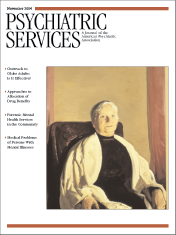Autistic Spectrum Disorders in Children
This is, quite simply, a gem of a volume. Clearly and concisely written, Autistic Spectrum Disorders in Children gives an easily digestible review of autistic spectrum disorders from history and definition through treatment and prognosis. It is one of the finest compendiums I have read that will benefit the care of these children. Because of its comprehensive approach and fluency of content it will be of benefit to the psychiatrists, pediatricians, psychologists, and social workers who practice among the developmentally disabled. It is a synopsis that residents and fellows can easily read and apply.
The tome begins with a history of the disorder and concise chapters on epidemiology and etiology. The heterogeneity of the disorders is well addressed, along with a wonderful discussion of the relationship between different symptoms and the likely areas of brain dysfunction. This discussion potentially opens doors to more thoughtful intervention.
One of the issues the book deals with well is the number and types of popular alternative approaches to treatment, including a review of diets and vitamin therapy, assessment of vaccine theories of etiology, gastrointestinal hypotheses, and facilitated communication. These can be difficult subjects to tackle well, and the contributors to this volume have done a fine job of treating each scientifically and respectfully. Each treatment is reviewed in terms of the thinking behind the hypotheses and the evidence.
Medication management and the range of neurobiological bases of symptoms are well explored and thoughtfully explained. For those of us who struggle to sort out appropriate services for these children, the chapters on educational, sensory integration, and occupational therapy interventions will be immediately practical. The chapter on educational and behavioral interventions includes discussions of programs at specific centers. This is a useful place to start for treaters and families who want to learn about the kinds of school-based programs available. A fine chapter follows on evaluating interventions by using an evidence-based approach.
Often a small book cannot do justice to the scope of problems it addresses. Autism is a large topic that does not easily lend itself to ready synopsis. The book's editor, Vidya Bhushan Gupta, and the individual contributors have eloquently overcome the difficulty of sharing a large amount of important information in a well-prioritized, easily comprehended, and concise volume. I strongly recommend this volume to any mental health treater who is involved in the care of children and their families who are affected by autism spectrum disorders. I also consider it to be a be a basic component of the library of pediatric and psychiatric residents who will help families face the challenges of optimizing functioning of their children with autism.
Dr. Erwin is assistant professor of psychiatry and pediatrics at UMass Memorial Health Care in Worcester, Massachusetts.



